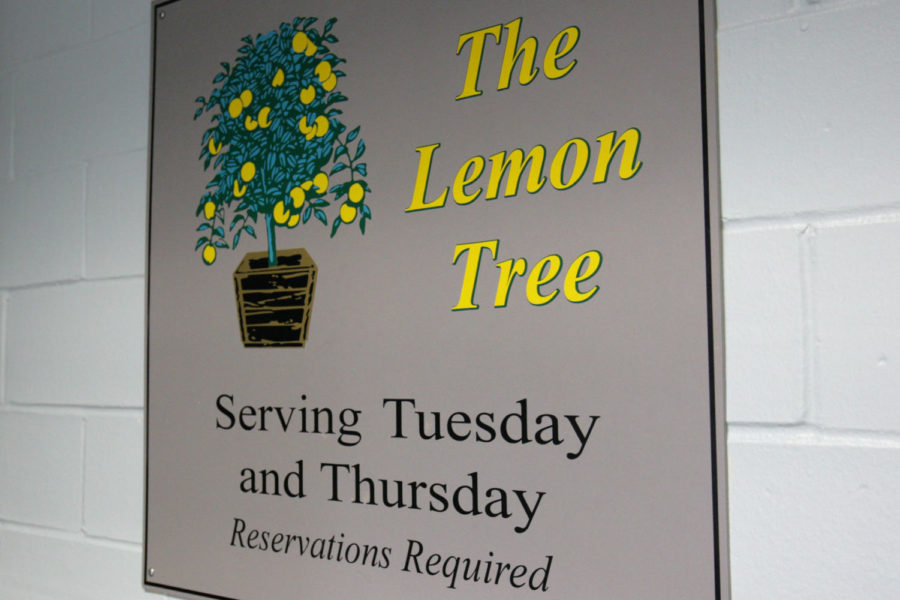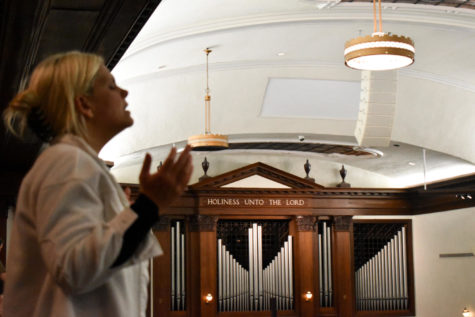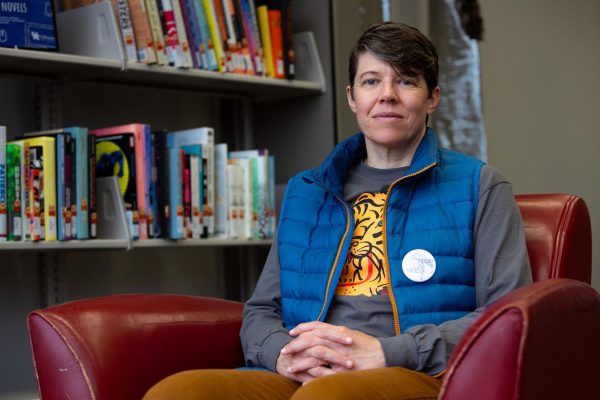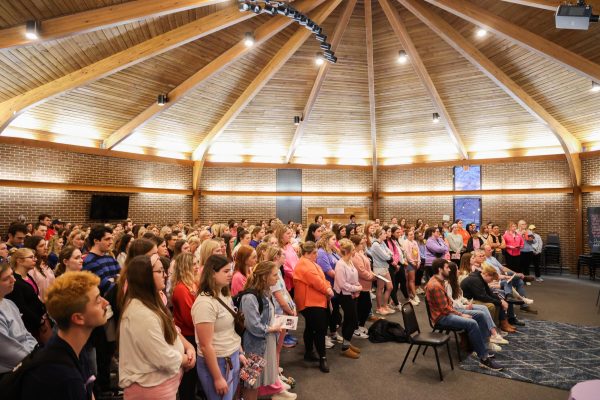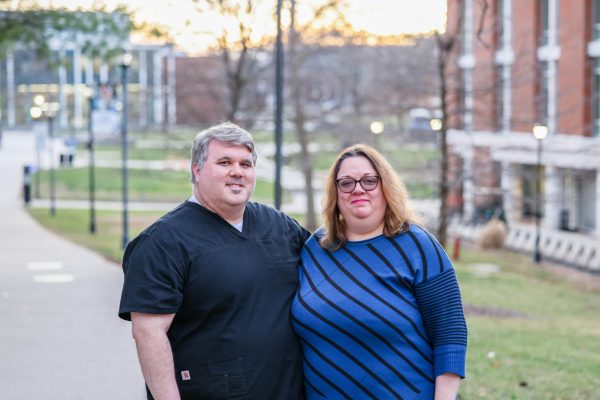Work meets play at Lemon Tree
April 5, 2017
The Lemon Tree, an eating spot unknown to most of campus, is a reservation-only restaurant where UK Hospitality students have practiced their skills since the mid-70s.
Students work at Lemon Tree as part of Dietetics and Human Nutrition 342, Quantity Food Production, operating a 47-seat restaurant on Tuesdays and Thursdays throughout the semester, serving a three-course lunch made from scratch. Meals are served at noon sharp in room 204 of Erikson Hall and cost $12. Entry after 12:10 p.m. is prohibited.
The Lemon Tree primarily serves American-themed dishes with occasional forays into Italian foods and other favorites. Past dished served at The Lemon Tree this semester include salmon with lemon dill vinaigrette, spaghetti and meatballs and roasted pork loin with apple cranberry chutney.
The Lemon Tree gets their food from as many locally sourced places as possible. Chef and instructor Bob Perry shops at Good Foods Co-op and Farmers Markets in Lexington to get a portion of the food for The Lemon Tree as well as through his distributers, Creation Gardens, Piazza Produce and Sysco.
DHN 342 is a capstone course where students use their cumulative knowledge to cook food in large quantities for service. The students rotate through different positions every week including cooking, dish washing, serving, managing and marketing.
DHN 342 is a course for senior DHN and Retailing and Tourism, or RTM majors. Students have been in classes together before, so over the years they have formed bonds that make teamwork second nature to them. This allows for the work done in this class to go smoothly.
Jessica Gough, a Hospitality senior, currently enrolled in the course appreciates the amount of real world experience the students get within the class.
“I enjoyed how interactive the class is instead of just sitting at a desk,” Gough said.
The objective of the class is to help students majoring in hospitality get real world practice.
“Unlike other labs they may have had with other classes, we only get one chance each class to make things properly,” Perry said.
Perry, who also serves as the Coordinator of the Food Systems Initiative in the College of Agriculture, Food and Environment, believes that the course is important for hospitality students because it gives them a chance to use their knowledge in a real-world situation.
Perry has been instructing students at The Lemon Tree for the past 10 years and has been a professional chef for 30 years.
Perry’s career as a professional chef led him to become an advocate for local foods. Perry has worked with many non-profits that promote sustainable eating and buying local, including serving on the board of Chefs Collaborative, an organization whose vision is that “sustainable practices will be second nature for every chef”.









































































































































